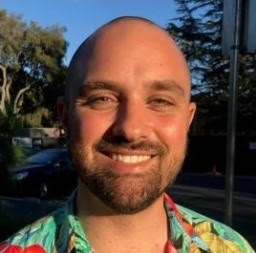REGISTER
Please join us on April 1, 2025 for a talk by AJ Alvero, a computational sociologist at Cornell University, presenting findings from an analysis of parole hearing transcripts in California. This talk is part of a symposium series presented by the UC Berkeley Computational Research for Equity in the Legal System Training Program (CRELS), which trains doctoral students representing a variety of degree programs and expertise areas in the social sciences, computer science and statistics. Co-sponsored by the UC Berkeley Berkeley Institute of Data Sciences (BIDS). This event will be presented in-person and will not be livestreamed.
Abstract
In California, candidates for parole are able to present their case with the support of an attorney to commissioners appointed by the state. These hearings are professionally transcribed, making them highly amenable to a variety of social scientific questions and computational text analysis. In this talk, I will discuss a large project analyzing every parole hearing transcript in California that occurred from November 2007 until November 2019, along with a wealth of administrative data, some of which was obtained after successfully suing the California Department of Corrections and Rehabilitation (CDCR). In some of our early work, we find that patterns in the text based on the words being used and who is using them (e.g., words used by the parole commissioner) have stronger explanatory power than variables used in past studies. To conclude, I will discuss forthcoming work which takes advantage of the unique structure of the transcripts.
About the Speaker
AJ Alvero is a computational sociologist at Cornell University with departmental affiliations in Sociology, Information Science, and Computer Science. Most of his research examines moments of high stakes evaluation, specifically college admissions and parole hearings. In doing so, he addresses questions and topics related to the sociological inquiry of artificial intelligence, culture, language, education, race and ethnicity, and organizational decision making. This work has appeared or is forthcoming in journals such as Science Advances, Poetics, The Oxford Handbook of the Sociology of Machine Learning, Sociological Methods & Research, Journal of Big Data, and other venues. AJ earned his PhD at Stanford University along with an MS in statistics.
View Map